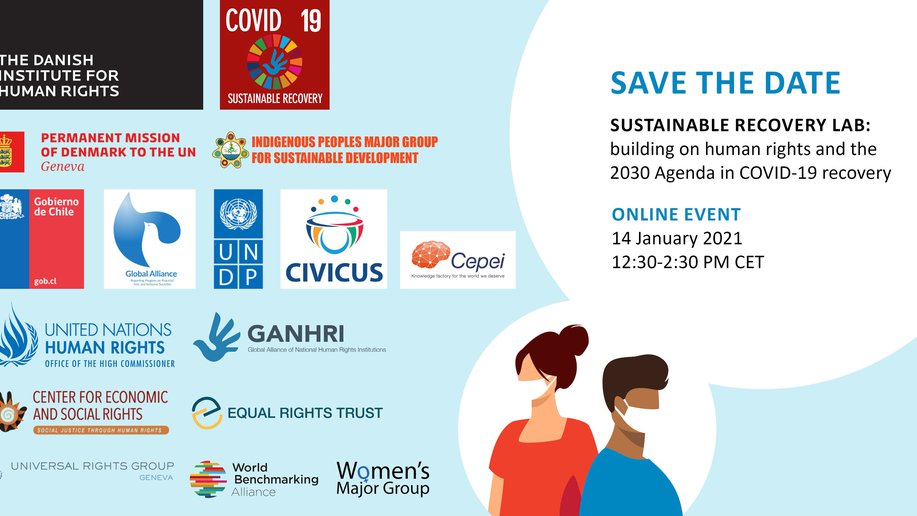On January 14th, CESR took part in two UN-related events focused on using the Sustainable Development Goals (SDGs) to build a human rights-based recovery to the COVID-19 pandemic. Our organization co-sponsored the Sustainable Recovery Lab, an event organized by the Danish Institute for Human Rights with the backing of the permanent missions of Denmark and Chile to the UN, aimed at creating a platform for developing ideas on how to operationalize the concept of “sustainable recovery” and explore it from different geographic and stakeholder perspectives.
Our Executive Director, Ignacio Saiz, moderated a civil society panel discussion titled “How do we ensure no one is left behind in Sustainable Recovery?”, with Joan Carling, Co-convener of Indigenous Peoples’ Major Group, Şehnaz Kiymaz, Women’s Major Group representative, and Mandeep Tiwana, Chief Programmes Officer at CIVICUS. In the session, Ignacio emphasized the importance of the human rights perspective to recognize development as a matter of justice, not of charity. Panelists affirmed the need for an approach to the SDGs which was more holistic, inclusive and transformative than has been the case to date.
Later that day, our Director of Programs, Kate Donald, took the floor at the United Nations Human Rights Council’s third intersessional meeting on human rights and the 2030 Agenda, on the theme of “Building back better: Integrating human rights in sustainable and resilient recovery from the COVID-19 pandemic”. In her intervention, Kate called for a “COVID-19 recovery which is not only sustainable but also just and transformative. Not for ‘building back better’, but for building something new”.
The outcomes of both the intersessional meeting and the Sustainable Recovery Lab will feed into deliberations at the July 2021 High Level Political Forum, the global platform for review of the SDG agenda.
You can read more about our work on COVID-19 recovery in our Recovering Rights series and our Confronting COVID blog posts.
